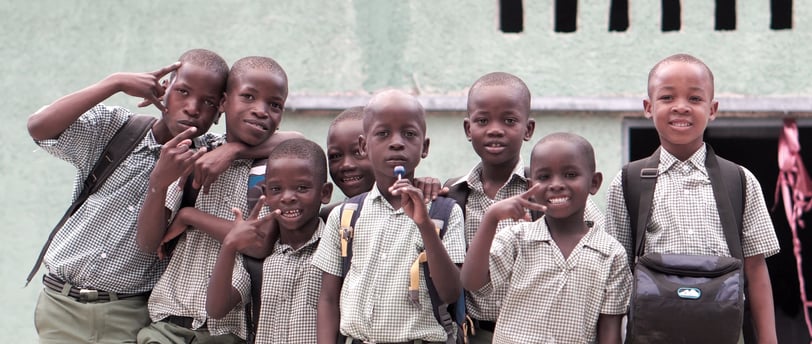Achieving Sustainable Development in Education in Nigeria
Our Commitment to SDG 4, Quality Education
Dr A D Olushina
3/29/20242 min read


Empowering Minds for a Brighter Future
Education is the foundation for a prosperous and equitable society. Unfortunately, in Nigeria, millions of children lack access to quality education due to financial constraints, inadequate infrastructure, and socio-cultural barriers. The lack of proper learning environments, unqualified teachers, and insufficient resources further deepens the education crisis. At A Walk With A Thousand Friends, we believe that education is a transformative tool that can break the cycle of poverty and empower individuals to build a better future.
The Current Challenges in Education
Nigeria has one of the highest rates of out-of-school children in the world, with millions of young people deprived of basic learning opportunities. Many rural communities lack schools altogether, while others have overcrowded classrooms with little to no teaching materials. Gender disparities also exist, with many girls being forced into early marriages or domestic labour instead of receiving an education. These factors make it difficult for Nigeria to achieve the universal goal of inclusive and equitable education.
The Role of Mentoring in Educational Development
Mentoring plays a crucial role in helping students make informed decisions about their education and future careers. Many students struggle with choosing the right course of study, often selecting fields without proper guidance, leading to mismatched career paths and underemployment. A well-structured mentorship program can provide students with:
Career Guidance: Helping students understand their strengths and interests to make informed academic and professional choices.
Exposure to Different Career Paths: Connecting students with professionals who can share insights on various industries and job markets.
Skill Development: Equipping students with the necessary skills, such as leadership, problem-solving, and communication, to succeed in their chosen fields.
Networking Opportunities: Building connections with mentors and industry experts who can provide career advice, internships, and job opportunities.
At AWWATF, we integrate mentoring programs into our education initiatives to ensure students are not only educated but also well-prepared for sustainable and profitable career paths. We partner with industry professionals, educators, and community leaders to mentor students, helping them build confidence and develop the expertise needed for long-term success.
How We Are Making an Impact
At [Charity Name], we are dedicated to addressing these educational gaps by:
Providing Free and Subsidized Education: We run initiatives that ensure children from low-income families receive quality education without financial burden.
Establishing Community Learning Centres: We set up schools and mobile learning hubs in underserved rural areas to bring education closer to communities.
Training and Empowering Teachers: We organize workshops and training programs to equip teachers with modern and effective teaching strategies.
Offering Scholarships and Mentorship Programs: We provide scholarships to outstanding students and mentorship programs that encourage lifelong learning and career development.
Creating Career Development Initiatives: We introduce structured career counselling and vocational guidance to prepare students for the job market and entrepreneurship.
How You Can Get Involved
Achieving quality education in Nigeria requires a collective effort. You can contribute by:
Donating to support our educational programs.
Volunteering as a mentor, tutor, or teacher.
Partnering with us to expand learning opportunities.
Together, we can create a future where every Nigerian child has access to quality education.
